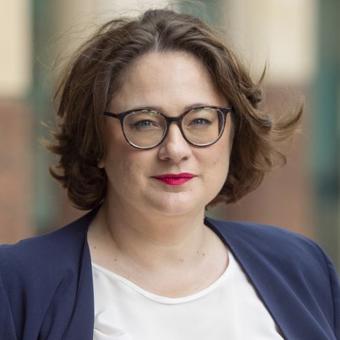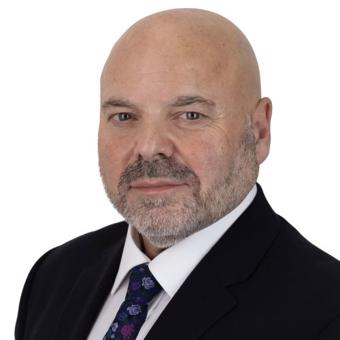Tim Halstead – managing partner of Shulmans – on his career, building the firm and being one of the UK’s longest standing managing partners
Tim, can you tell us a bit about your career to date?
I trained in Leeds with Harrisons, a small general practice (as most firms then were). I was introduced to Jeremy Shulman just after I qualified and joined him a year or two later (in 1984). I was the only other qualified lawyer in the business for a year and became a partner in 1985; our business partnership has just marked its 30th anniversary (though I am not sure anybody noticed).
On my first day Jeremy gave me fifty files, supposedly representing the “property department”. It didn’t take me long to find a number of debt recovery jobs, a County Court claim and a commercial agreement. Most interesting to me were a couple of housing sites for Bellway Homes - a really big client for a small firm back then. Over the last 30 years or so I have helped to build up a real strength for the firm in work for house builders; we now have six lawyers doing acquisitions and disposals of residential development land and a further team dealing purely with plot sales.
In the early days, if something needed doing, you just had to do it - there was no one else to do it for you. Jeremy and I split the management functions; I took on the financial aspects and (when it arrived) technology. As we grew my role evolved into that of managing partner, but if there was a day when that role was formalised, I don’t remember it. But I can say with certainty it is a role that I have had – and really enjoyed – ever since. These days we are a full-service UK200 corporate law firm, with 22 partners, a total staff of over 160 and a turnover on track for over £12m this year.
How did you set about building the practice?
In the early years we largely worked on instinct, rather than a grand plan. It was unusual for a small firm to be so focused on corporate and commercial law. Some might consider it a cliché to say we often “punched above our weight”, but we did; we were an attractive proposition for any ambitious lawyer who did not fancy life in “the Big Six” (firms such as Dibb Lupton, Simpson Curtis or Booth & Co, which emerged and developed hugely in the 1990s).
In later years we formalised our strategy rather more, a key part of that being the recognition that it’s not all about making money. Most lawyers are driven by a wish to do stimulating work for (occasionally) appreciative clients. I see my job as providing the tools that enable our lawyers to do their job properly. It has been a long-held principle of our management style that, if you look after your people, they will look after your clients, and the money will look after itself. It’s funny how that principle still seems to work, no matter what market forces may apply.
We moved last year to new state-of-the-art premises at the award-winning Wellington Place, in the heart of the new business district of Leeds. There’s a real sense of community: a five-a- side pitch on site; regular street food at lunchtimes; we’re even helping to set up a Wellington Place choir. All of that really helps make it a great place to work.
Do you have any merger plans?
No. We do talk about mergers quite a bit but we enjoy the culture we’ve developed and are keen to preserve it. We have achieved 10%+ growth in each of the last five years, doubling in turnover (and much more than doubling profit) in that period, so there is no compelling reason to seek a merger.
We have concentrated instead on building our practice, person by person. We set great store by our career development programme – and many of our partners and lawyers started as trainees with us. We have also brought in lawyers from outside the firm to help us build up expertise in new areas such as insolvency and planning, and to bolster other areas such as real estate, employment and corporate finance.
I spend a lot of time on recruitment. Typically I have five or six meetings with a senior recruit before they join us – it’s a two-way process of getting to understand each other and making sure there’s a good cultural fit. Sometimes the early discussions focus on convincing someone that a firm such as ours is the right place for them, especially if their career to date has been in a large, national firm. It works - some current partners have had previous lives at Eversheds or Addleshaw Goddard, for example.
Do you have any plans to expand or open new offices in other locations?
We enjoy the benefits of being a single-site law firm in a city as vibrant as Leeds. We serve our regional market very well from here and increasingly operate nationally and internationally.
We have a small office facility in the City of London, but that’s not “a London office” in the traditional sense. We are also active members of Interlegal, a network of like-minded law firms, with representatives in nearly forty jurisdictions across the world. We can be nimble in dealing cost-effectively with work across borders.
Things will evolve. We talk about new opportunities all the time. I wouldn’t rule out another office, but it’s not on our agenda at the moment.
You still do some client work – how easy is it to juggle that with your role as managing partner?
Notionally I have a day a week allocated to client work, although it tends to come in lumps as I am a transactional lawyer. My main client work is in supporting the lawyers who work full-time in our residential development team, which means I can dip in and out. It’s really important I remind myself what it’s like to be a lawyer, so I frequently trial new systems myself. It’s equally important though that I have the time to devote to managing and developing the firm, because that really is a full-time job.
You must be one of the longest serving managing partners in the country. Do you still enjoy it?
Absolutely! My job title may have stayed the same, but the role has evolved as the firm has grown. We have much more professional management in all sorts of areas, so I do very different things now to those I did ten or twenty years ago. There is always a new challenge and we have great plans to continue to develop the firm. I want to be part of that for as long as my partners can put up with me.
Finally, can you sum up in five words why Shulmans is a good place to work?
We put our people first.









